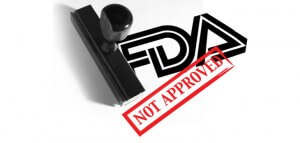The unspoken truths about anti-snoring oral devices
Nearly every industry, to some degree, employs marketing tactics that are often questionable and the anti-snoring industry is no exception. While most manufacturers know better than to make false statements while advertising, many are guilty of deception by omission – that is not telling the whole truth by leaving out information that may steer potential customers away.
But Bob, aren’t you a proponent when it comes to these over-the-counter stop snoring mouth guards? Of course, I am! I believe that in most cases they can be a less costly alternative to a dentist fitted oral appliance. A decent OTC Mandibular Advancement Device can be purchased for less than $200 and most are in fact very effective. In comparison, professionally fitted units often cost thousands of dollars and ultimately work the same way, by holding the lower jaw forward as you sleep. So yes I believe that they can be a wonderful alternative to more expensive MAD’s.
That being said, let’s dive in and take a look at 5 phrases that you are unlikely to hear in a snoring mouth guard sales pitch and why:
We said 96% customer satisfaction, not 96% rate of effectiveness
 Every time I see a sales page that claims a “96% or 99%” customer satisfaction rate, I often wonder how many people make a purchase based on the logic that if it works for 96% of people then it should work for me. Nothing could be further from the truth.
Every time I see a sales page that claims a “96% or 99%” customer satisfaction rate, I often wonder how many people make a purchase based on the logic that if it works for 96% of people then it should work for me. Nothing could be further from the truth.
In various clinical studies, mandibular advancement devices have proven to be successful when it comes to reducing or eliminating snoring. While the overall success rate often varies between studies, oral appliance seem to be +-80% effective.
A 96% customer satisfaction rate simply means that 96% of those who purchased their product did not return it. Let’s assume that they are truly 80% effective at relieving snoring. This means that for 80 out of 100 people it worked fantastically. This leaves 20 people who did not have success. We already know that four people returned the device but what about the remaining 16? These are the ones who for whatever reason decided that it wasn’t worth the effort to seek a refund.
Remember, 96% customer satisfaction does not equal 96% rate of effectiveness.
Wait! Before buying, first, speak with your doctor
 In most cases snoring is simply benign snoring, meaning well… you simply snore. Other times it can be a sign of a potentially serious medical condition. Attempting to silence a snoring problem may be a mistake if you are suffering from a condition such as OSA.
In most cases snoring is simply benign snoring, meaning well… you simply snore. Other times it can be a sign of a potentially serious medical condition. Attempting to silence a snoring problem may be a mistake if you are suffering from a condition such as OSA.
Before using any such device to prevent snoring, mention this issue to your primary care physician. They should be able to determine whether or not you should seek further medical assistance in order to rule out the possibility that you have a sleep-related breathing disorder. Simply mention this concern to your doctor and see what he or she has to say.
Very rarely do you come across a sales pitch that advises one to speak with their doctor first. While this may be common sense to some, it may not even be a thought to others.
Why do they not advise speaking to your physician? Perhaps they want to land the sale before you become distracted and end up buying from a competitor later on?
“FDA approved materials” does not mean that the device has been FDA approved.
 Did you know that not all over the counter oral appliance being sold online have been approved by the Food and Drug Administration or similar regulatory agency? However, quite a few tout that their product is constructed from “FDA approved” materials. They are simply claiming that the materials used to produce their device have been approved by the FDA. (for use in oral appliances I’m assuming)
Did you know that not all over the counter oral appliance being sold online have been approved by the Food and Drug Administration or similar regulatory agency? However, quite a few tout that their product is constructed from “FDA approved” materials. They are simply claiming that the materials used to produce their device have been approved by the FDA. (for use in oral appliances I’m assuming)
This does not necessarily mean that the device itself has been approved for sale by the FDA. Whenever you are shopping around, look closely at such wording and read between the lines. If you are concerned whether or not a device has been approved by the FDA, look it up. Always confirm such details before simply breezing over a sales pitch and believing all that has been stated.
We never really clinically tested our product
 This may be a shocker to you but did you know that the majority of anti-snoring mouthpieces have not been clinically tested? How could this be?
This may be a shocker to you but did you know that the majority of anti-snoring mouthpieces have not been clinically tested? How could this be?
First, conducting a clinical study can be quite costly and many start-up companies do not have such funding. Even if they had available funds, in all likelihood, these studies will still not be conducted for the second reason and that is because the Food and Drug Administration does not require such devices to be clinically tested. The FDA’s Class II Special Controls Guidance Document states right here:
“In accordance with the Least Burdensome provisions of the FDA Modernization Act of 1997, the agency will not request clinical studies for new devices unless there is a specific justification for asking for such information to support a substantially equivalent determination.”
There a couple of manufacturers who have gone the extra mile but the vast majority have not. Some may use wording such as “proven to be effective”. Do not confuse this with clinically proven.
Our mouthpieces are the cure for Obstructive Sleep Apnea
 Suggesting that over-the-counter mouthguards are the cure for sleep apnea is treading in dangerous waters and most manufacturers have figured this out by now.
Suggesting that over-the-counter mouthguards are the cure for sleep apnea is treading in dangerous waters and most manufacturers have figured this out by now.
Before a mouthpiece can be used to treat OSA, a baseline must first be established by a qualified sleep medicine trained medical consultant who must first confirm that one does, in fact, have OSA. At this time they will then measure the degree to which one has OSA and then discuss treatment options. In many mild to moderate cases of OSA, a mouthpiece could potentially work.
Suggesting that an OTC mouthpiece will cure sleep apnea is a vague statement that can lead to gross misinterpretations or even self-diagnosis. In order to avoid any issues that may arise, most manufacturers completely eliminate such wording, although there are a few more daring ones who still make such suggestions.
The take-home message
 Why did I choose to highlight such information? My reasoning can be explained using two words – Caveat emptor. Latin for “Let the buyer beware”.
Why did I choose to highlight such information? My reasoning can be explained using two words – Caveat emptor. Latin for “Let the buyer beware”.
Providing all of this omitted information educates my readers who are then able to make informed purchasing decisions.
My personal beliefs are that OTC mouthguards can be an excellent alternative to more expensive professionally fitted devices under the right conditions. I have experimented with several of these and can attest that they do in fact work for simple snoring. It is however important for the consumer to know exactly what they are purchasing and for what reason they are purchasing it.
The manufacturer’s responsibility is not to educated you but rather sell their product while remaining within bounds.
Which mouthpiece should I buy?
The anti-snoring mouthpiece is one of the most highly effective stop snoring solutions available. With over 100 different products to choose from, deciding which one to buy can be challenging.
As a snorer and product reviewer, I have tried many of these devices and created a list of recommended devices that will help to make this decision much easier.
Share This Post: